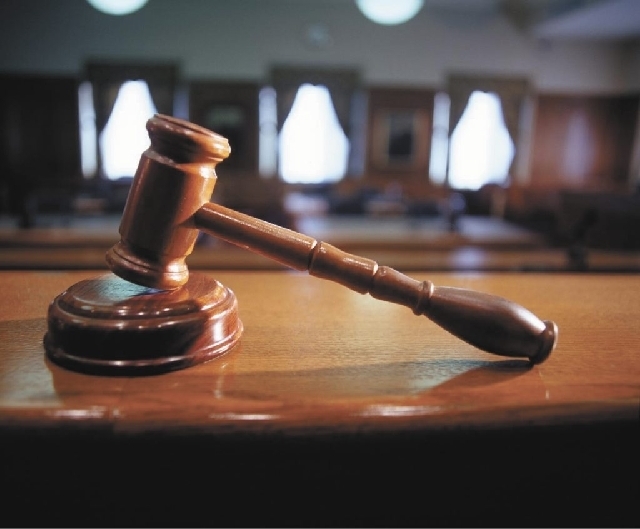Bold defense in ‘Slumdog Billionaire’ case

With video and audio recordings showing Dr. Vinay Bararia selling drugs to undercover agents in the Centennial Hills Hospital parking lot and outside a bar across the street, a jury seems likely to find him guilty.
So, defense attorneys Kathleen Bliss, Cheryl Grames and Thomas Mesereau are doing what good defense attorneys do — they’re trying to get a judge to dismiss the indictment based on outrageous government misconduct.
The case is currently assigned to the newest federal judge in Las Vegas, Jennifer Dorsey, whose prior experience is more civil than criminal.
Right now the trial is set for October; but the defense team is blasting government agents, in particular Metropolitan Police Department narcotics Detective Jeremy Melvin, who was working as a task force officer for the Drug Enforcement Agency.
Defense attorneys are saying the name of the probe, “Operation Slumdog Billionaire,” had “obvious ethnic and cultural derogation.” The name came from the Drug Enforcement Agency, according to prosecutors.
It’s a takeoff on the 2009 Academy Award winning film “Slumdog Millionaire.” The movie portrays a young man living in a Mumbai slum trying to win a game show and focuses on flashbacks of his life in the slums.
But is the operation’s name an insensitive racial slur, since Bararia was born in India and is a Hindu?
Bararia’s attorneys contend it most definitely is.
When Louisiana Gov. Bobby Jindal was referred to as a slumdog millionaire on a radio talk show in 2009, it became a political brouhaha.
Did the name suggest some predisposition against Bararia by investigators?
Or was it just catchy and funny in light of the hugely popular movie?
Bararia was indicted on seven counts — one count of conspiracy to distribute Oxycodone and Hydrocodone, five counts of distributing these controlled substances and one count of possession with intent to distribute.
Melvin’s affidavit alleged that six drug buys were arranged for a total of $46,150 in cash payments to Bararia.
The last count was based on the March 1, 2012, arrest of Bararia in the hospital parking lot, where he is accused of selling the painkillers to an undercover agent out of his Jaguar.
All the sales were in either the hospital parking lot or the Kopper Keg across the street, according to Melvin. His descriptions of the internist calmly selling pain killers and then walking back into the hospital packed an emotional wallop.
The defense team claimed investigators did a poor job of wiretap monitoring, listening to privileged telephone conversations instead of cutting them off. They asked that the phone taps be suppressed.
Next, Bararia’s attorneys believe judges who approved electronic surveillance and wiretaps were misled, another reason to dismiss the indictment.
Because Melvin omitted the DEA case name “Slumdog Billionaire” in his affidavits, Bararia’s attorneys said that intentionally misled judges who approved wiretaps.
Melvin wrote that, based on sources, he believed Bararia was part of an Armenian drug trafficking ring. Yet “Operation Slumdog Billionaire” didn’t seem Armenian.
The government and Bararia’s attorneys will argue that one.
Defense attorneys also contend authorities listened too long to conversations between Bararia and his wife, his attorneys, and his patients, which are considered privileged conversations. Investigators should have “minimized” those calls and stopped listening, the defense contended.
Federal prosecutors defended Melvin’s affidavits and the electronic surveillance as proper.
Bararia’s attorneys also seek a hearing to show that Melvin was intentionally making false statements. Again, that’s a question for the judge.
This is a case to watch for many reasons.
Can Dorsey control her courtroom when faced with strong-willed attorneys?
How often will allegations of racism by investigators surface? Are they even relevant? Can defense attorneys show that investigators engaged in misconduct?
Or is this a routine Hail Mary pass by defense attorneys?
Let the case advance from saying to proving.
Jane Ann Morrison’s column appears Monday, Thursday and Saturday. Email her at Jane@reviewjournal.com or call her at 702-383-0275.












